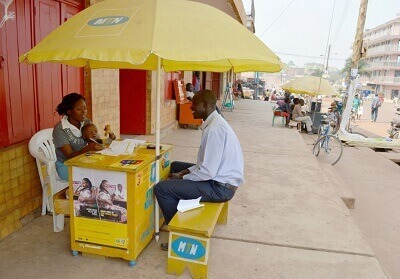The introduction of the mobile money system in Ghana has significantly streamlined money transfers among ordinary individuals, addressing the challenges faced by those who previously encountered difficulties in sending money to one another.
Understanding Mobile Money
Mobile money is a digital financial service that facilitates the seamless transfer, receipt, and storage of funds. This platform operates through a digital wallet that securely holds users’ money until they opt to send it to another individual, utilize it for purchases, or transfer it to a bank account.
An inherent advantage of the mobile money service is its accessibility, as users are not obligated to possess a traditional bank account for registration.
A valid identification card is the sole requirement for individuals to enroll in this service.
Ubiquity In Ghana
Ghanaians have embraced the convenience offered by mobile money, a service now ubiquitously provided by major telecom companies in the country.
MTN pioneered the introduction of the mobile money platform in Ghana in 2009, eliminating the need for individuals to have a bank account to engage in digital financial transactions.
Subsequently, other telecom giants such as Airteltigo and Vodafone have integrated mobile money into their services, recognizing the substantial impact it has on financial accessibility and inclusivity.
Industry Growth
The Central Bank of Ghana’s reported statistics indicate a noteworthy surge in mobile money transactions, witnessing a 20% increase in 2016, with a total value of $177.9 million.
This growth underscores the pivotal role that mobile money plays in the financial landscape of the country.
Despite Ghana’s robust economic standing in Africa, the urban-rural divide has positioned the nation as a prominent hub for domestic remittances, further accentuating the significance of mobile money in facilitating financial interactions across diverse geographical areas.
The evolution and widespread adoption of mobile money in Ghana reflect its transformative impact on the accessibility and efficiency of financial services, particularly benefiting those who were previously excluded from traditional banking systems.
Before the Mobile Money Service
Before the introduction of the mobile money service in Ghana, a substantial portion of the population, approximately 70%, was considered unbanked.
This denoted individuals without access to a bank account, rendering them incapable of engaging in fundamental financial activities such as sending, receiving, and saving money.
During that period, only about 35% of the population owned mobile phones. Notably, a significant portion of Ghanaians sought job opportunities in urban areas, leading to internal migration.
These individuals, upon securing employment, often needed to send money back to their families residing in rural villages.
The absence of a banking infrastructure in many remote locations meant that traditional banking systems were inaccessible.
The advent of the mobile money platform played a transformative role in this context. It provided a crucial avenue for unbanked individuals to conduct financial transactions, especially money transfers, which were vital for those who had relocated for employment.
This innovative solution facilitated financial inclusion by offering a means for individuals to send and receive money without the prerequisite of a traditional bank account, addressing a critical gap in the financial landscape and significantly impacting the lives of those previously excluded from formal banking channels.
How It Operates
When the service was initially launched, it operated similarly to the traditional money transfer businesses before it. However, the telecom companies later introduced mobile agents that were instructed to help users of the service transfer or receive money from the agent’s account.
As time went on and the mobile money platform became more popular and widely sought after, the telecom companies began to register users by giving the man accounts on their mobile phones. the platform also received some support from the country’s central bank, which helped it flourish.
The central bank saw the opportunity to get banking services to more people through the mobile money platform, thereby reducing the percentage of unbanked citizens in the country. A survey later revealed that access to financial services in the country could grow by 41%.
The number of stalls used by the MTN mobile money vendors in the country outnumbered bank branches by 2015. New e-money laws, which the central bank later introduced, brought some favorable changes to the mobile money platform, such as a simple registration method for users and simplified rules of operation on the business model.
After The Invention Of Mobile Money Service
Today, the mobile money platform is the most popular financial tool available, with millions of subscribers belonging to different services run by the telecom companies in Ghana. MTN Ghana still leads the mobile money market with a more significant market share than other telecom companies.
This is because MTN made the platform famous before the other telecom companies joined. By then, MTN had gained a sizable amount of users on the platform.
Ghana was also one of the first nations to make contactless NFC payments available through mobile money. This was made possible through AirtelTigo’s ‘tap and pay’ service.
Wondering what reference means when sending mobile money? Click here to know also how to reverse wrong MTN mobile money transactions.




[…] a shortcode for reporting all mobile money-related fraud issues; this is a unique shortcode that MTN Ghana created to combat mobile money fraud. All you have to do is send your details to that […]